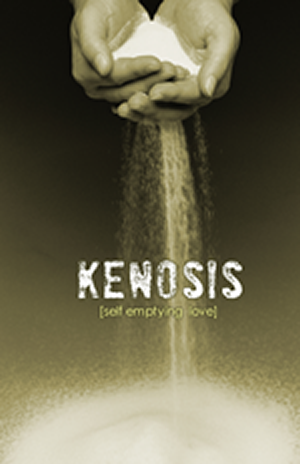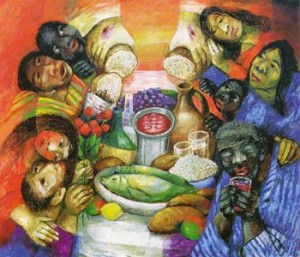“writing is easy…”
Tags:
Some of the required outcomes of the MDiv program—language competency, exegetical ability, and facility in written communication, for example—are more easily measured through class grades than through posts in an electronic portfolio. Though this may be the case, I would still like to take advantage of this opportunity to draw attention to a few papers I have written in GST classes that I believe are good indicators of my language, exegetical, and communication skills (outcomes 1abcd and 11abcd).
First is an exegesis paper written in the spring of 2011 for Dr. John Willis and Dr. James Thompson’s Exegesis class. The paper looks closely at Philippians 3:7-16, concluding that this pericope is Paul’s theological narrative of kenosis in his own life, one of a number of passages throughout Philippians that indicates kenosis as the letter’s overarching theme. This exegesis paper received an A from Dr. Thompson, along with the comment, “Nicely done.”
The next paper, “A Divine Oikos,” was written for Dr. Niccum’s Advanced Intro to New Testament class in the summer of 2011. It traces the theme of household throughout Ephesians, viewing household as an organizing metaphor for the church that subsumes the letter’s other metaphors under its conceptual framework. The paper received an overall grade of 278/300 (93%), and Dr. Niccum remarked that “with a little work it could be presented at a conference or published.”
Writing these papers and others like them revealed at least two important things to me. First, though I don’t always like the writing process (sometimes it’s just hard to find the motivation!), I do like having written something that is deemed to be of decent quality or usefulness. I’m still not quite sure what that distinction means for my thoughts about possible PhD work and teaching, but I am encouraged that the same kind of feeling seems to have engulfed author Gene Fowler at times, for he said, “Writing is easy. All you do is stare at a blank sheet of paper until drops of blood form on your forehead.” (Quote found here.) I am in good company.
But second, and closely related, I very much enjoy the conceptual work that goes into forming ideas for my papers. I remember the moment when the idea of kenosis as a guiding interpretive concept for all of Philippians crystallized in my mind, transforming me from a frustrated, tired student to an inspired, voracious learner. That was an exciting moment! A similar thing happened with the theme of household in Ephesians. And developing those spontaneous moments of insight was just as exciting. And though I will be the first to admit that those ideas have probably been more fully formed—or, more likely, negated—coherently in the writings of better scholars, I still found and find gratification in having discovered them for myself.
All that having been said, I leave you now with the papers themselves.




